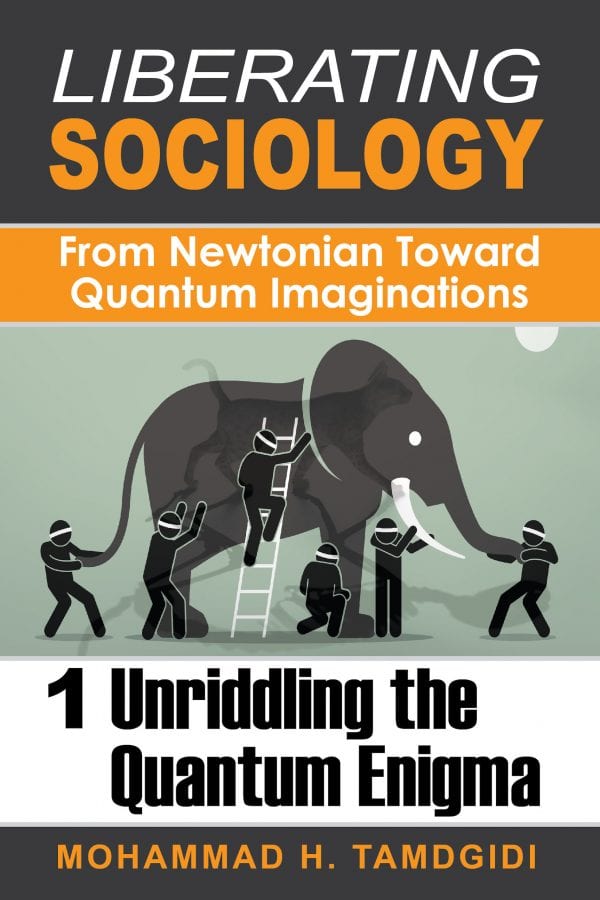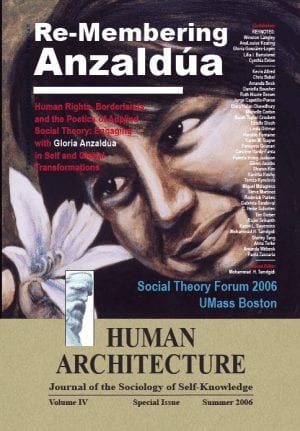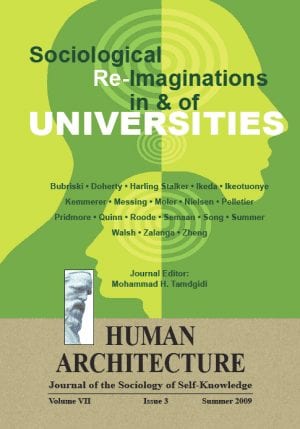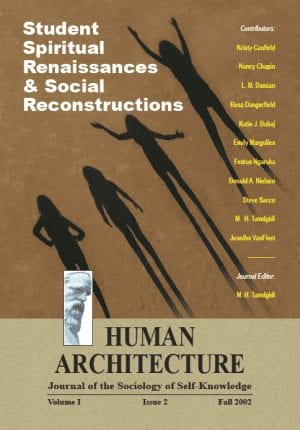Book Section: FRONTMATTER — Including Preface and Introduction: An Elephant in the Room of Physics and the Sociological Imagination — by Mohammad H. Tamdgidi
$20.00
This book section includes the front matter, the common preface, and the introduction to the series, Liberating Sociology: From Newtonian to Quantum Imaginations: Volume 1: Unriddling the Quantum Enigma, authored by Mohammad H. Tamdgidi.
Description
Abstract
This book section includes the front matter, the common preface, and the introduction to the series, Liberating Sociology: From Newtonian to Quantum Imaginations: Volume 1: Unriddling the Quantum Enigma, authored by Mohammad H. Tamdgidi.
Following an acknowledgment essay in which the personal and contextual-historical background and origins of the study are reflected on, in his common preface to the series Tamdgidi offers substantive and autobiographical backgrounds to his writing of the series as referenced in its title. He notes how the series itself represents an expanded third leg of a trilogy of works originating from his 2002 doctoral dissertation, titled “Mysticism and Utopia: Towards the Sociology of Self-Knowledge and Human Architecture (A Study in Marx, Gurdjieff, and Mannheim).” He notes that the first two legs of the series have already been published under the titles Advancing Utopistics: The Three Component Parts and Errors of Marxism (Routledge/Paradigm 2007) and Gurdjieff and Hypnosis: A Hermeneutic Study (Palgrave Macmillan 2009). In the new series Liberating Sociology the author intends to retrace, revisit, critically revise, update, and systematically integrate into a coherent whole all his pertinent unpublished or previously published working papers, articles, chapters, and writings relevant to the third leg of the trilogy, now newly framed as an effort in advancing sociology from Newtonian toward quantum imaginations. Tamdgidi concludes the preface with an autobiographical account, in the spirit of advancing the sociological imagination of his own work, of the interplay of personal troubles and public issues that fueled this intellectual project of researching and writing his trilogy as a whole.
In the introduction Tamdgidi begins by asking whether C. Wright Mills’s proposed “sociological imagination” reflected a Newtonian way of thinking or a departure from it? He suggests that the answer requires a clear understanding of what the Newtonian way of thinking is and how it differs from the relativistic and quantum ways of imagining reality. Understanding such contrasting visions, however, itself requires an exploration of the so-called quantum enigma that has remained unresolved for almost a century. Contrary to both those who may argue that quantum science is not relevant to the social sciences and sociology, on one hand, and those who argue the relevance can be explored without the need to deal with the quantum enigma, on the other hand, Tamdgidi argues that the more cautious and responsible approach to adopt is to problematize the quantum enigma also as a part of our search for understanding the quantum way of imagining reality. Given such a major task at hand, Tamdgidi chooses to postpone exploring the nature of C. Wright Mills’s sociological imagination to later volumes of the series, deciding on devoting the present volume only to exploring the quantum enigma and more broadly how the classical Newtonian, relativistic and quantum ways of imagining reality differ (or not) from one another. He then offers a brief outline of the chapters of the book to follow, and his basic argument that unriddling the so-called ‘quantum enigma’ depends on whether and how we succeed in dehabituating ourselves in favor of unified relativistic and quantum visions from the Newtonian ways of imagining reality that have fueled the enigma for more than a century. In his view, the roots of the enigma surrounding the nature of reality can be traced to the rigidified and habitually Newtonian, binary, partial, and disciplinary modes of imagining reality that have subconsciously persisted in the ways physicists and other observers have gone about interpreting (or not) the enigma itself over the past decades. Once this veil is lifted and the enigma unriddled, it becomes possible to reinterpret the relativistic and quantum ways of imagining reality (including social reality) in terms of the unified, nonreductive dialectics of part and whole in order to develop quantum relativistic sociological imaginations, methods, theories, and practices that favor more creativity and liberating social outcomes. The essays in this volume develop a quantum relativistic solution to the so-called ‘quantum enigma’ in a transdisciplinary sociology of self-knowledge interpretive framework. They involve critical, East-West comparative/integrative reflections on relativity and quantum theory as advanced in others’ relevant works.
Recommended Citation
Tamdgidi, Mohammad H. 2020. “FRONTMATTER — Including Preface and Introduction: An Elephant in the Room of Physics and the Sociological Imagination.” Pp. i-xlii, 1-42 in Liberating Sociology: From Newtonian Toward Quantum Imaginations: Volume 1: Unriddling the Quantum Enigma. (Human Architecture: Journal of the Sociology of Self-Knowledge: Vol. XIII, Issue 1, 2020.) Belmont, MA: Okcir Press (an imprint of Ahead Publishing House).
The various editions of the volume of which this chapter is a part can be ordered from the Okcir Store and all major online bookstores worldwide (such as Amazon, Barnes&Noble, and others).
Read the Above Publication Online
To read the above publication online, you need to be logged in as an OKCIR Library member with a valid access. In that case just click on the large PDF icon below to access the publication. Make sure you refresh your browser page after logging in.








